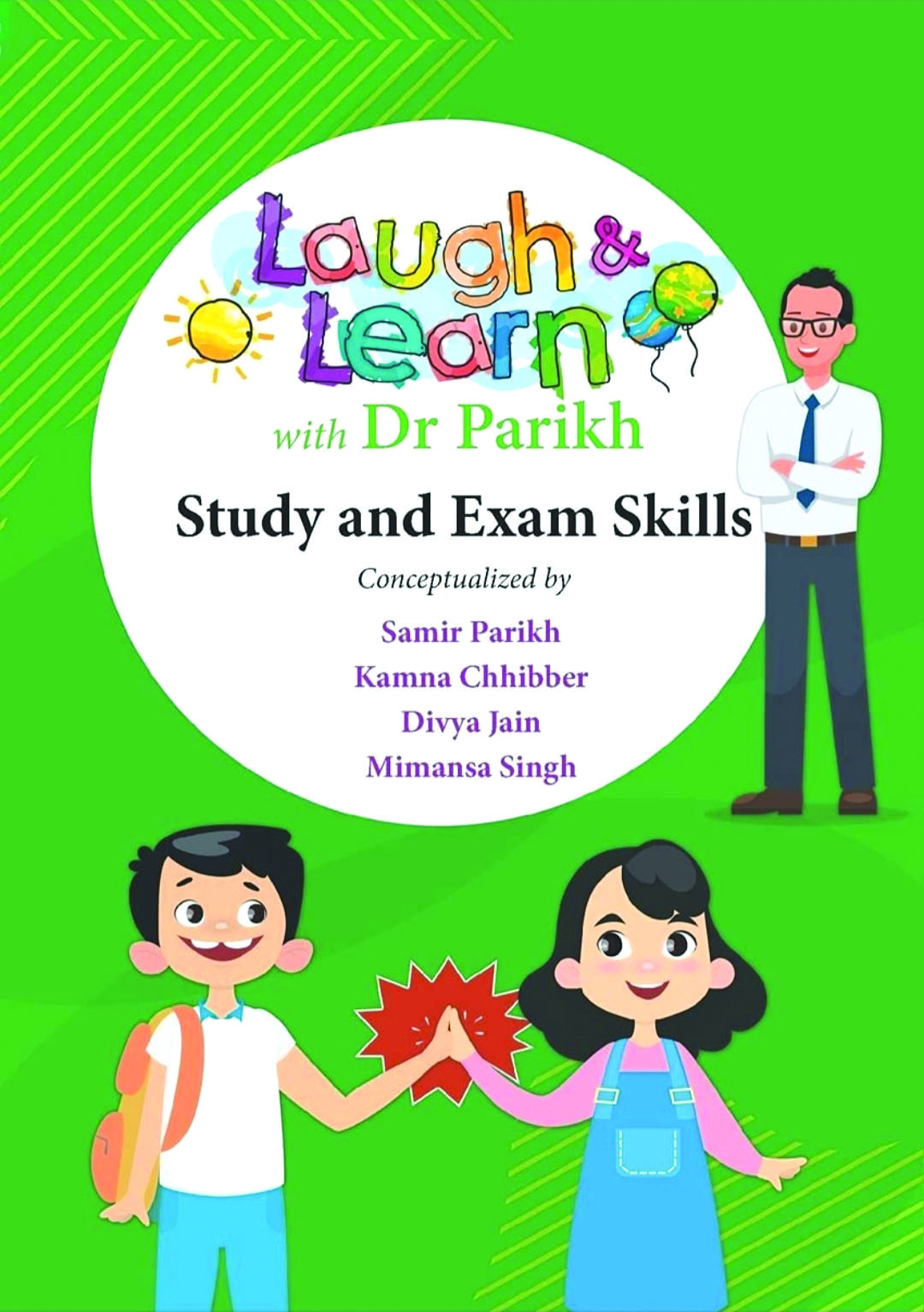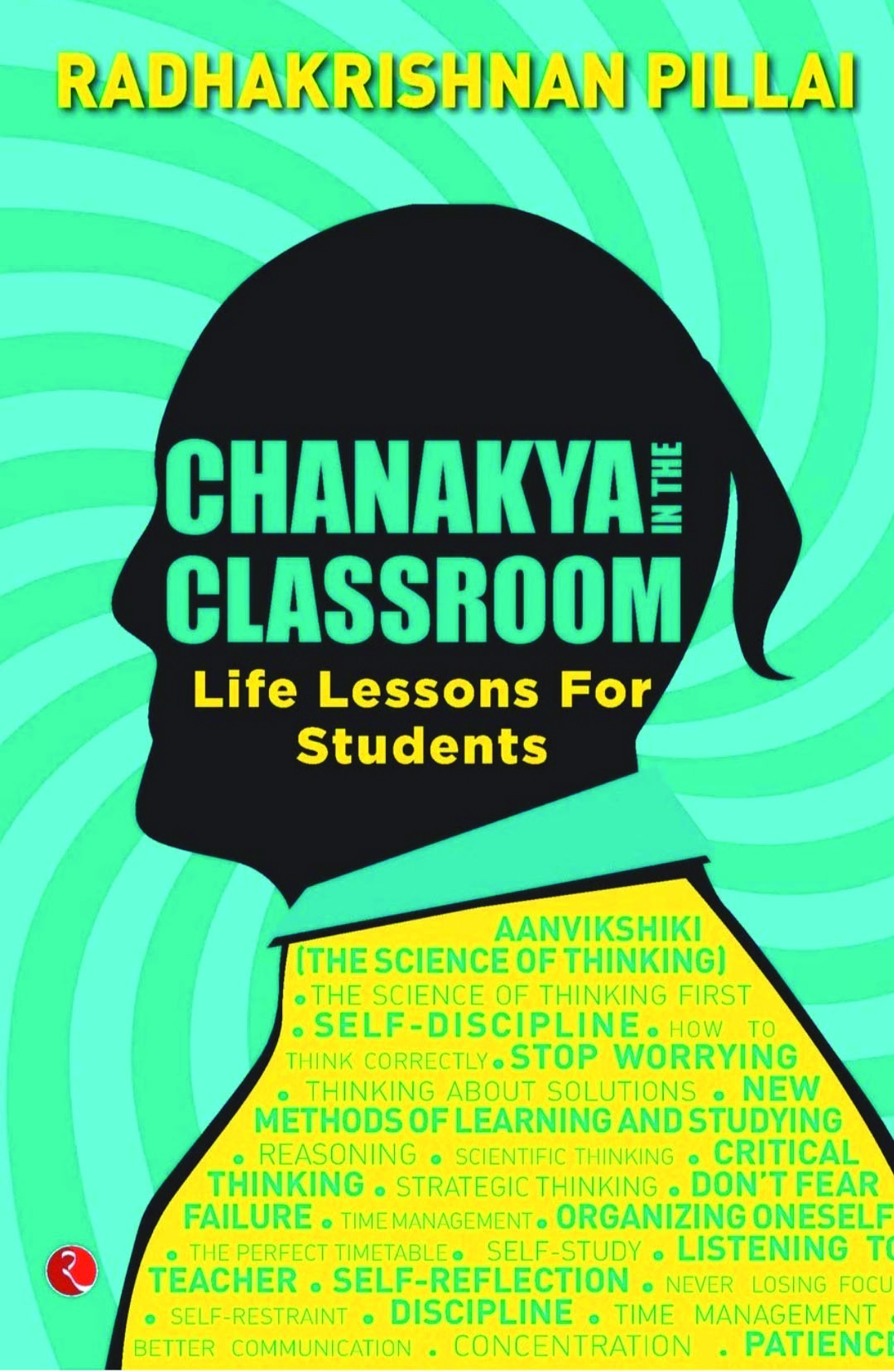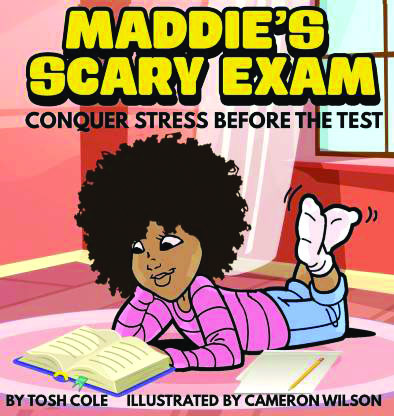Helping children during exams season
Although most parents tend to dismiss exam stress as normative, mental and emotional well-being professionals warn that persistent academic stress and anxiety especially in the new age of ubiquitous social media has grave short and long-term implications for children’s physical and mental health write Kiran Balimane, Cynthia John & Mini P.

In every school student’s annual school calendar, February-March are high-stress red-marked months. This is the time when the country’s 57 national and state exam boards conduct their class X and XII school-leaving board examinations, and all 1.4 million primary-secondary schools countrywide their final annual exam. Add to them, highly competitive public exams such as the annual IIT-JEE which determines entry into the country’s 23 IITs; the National Eligibility-cum-Entrance Test (NEET) that decides entry into 751 medical colleges and Common University Entrance Test (CUET) for admission into 56 Central universities.
The pressure of scoring high marks/grades in these exams particularly school-leaving board and public competitive exams which determine entry into the country’s few high-quality undergraduate colleges pushes a rising number of teens over the edge. Most experience high levels of stress and anxiety, some plunge into depression and a few unable to cope with fear of failure take the extreme step of ending their lives by suicide.
According to the National Crime Records Bureau (NCRB), an estimated 2,500 children and youth commit suicide every year. Over the past seven years (2014-2020), 12,582 students have taken the extreme step of ending their young lives by suicide because of examination stress and fear of failure. A recent 2022 survey conducted by the Delhi-based National Council for Educational Research and Training (NCERT) indicates that 80 percent of classes IX-XII students suffer high anxiety during these months.
Although most parents tend to dismiss exam stress as normative, mental and emotional well-being professionals warn that persistent academic stress and anxiety especially in the new age of ubiquitous social media, has grave short and long-term implications for children’s physical and mental health. “Generally, exam stress is perceived as situational; something that will fade away after the exam. This is not always the case. Some children experience severe psychological and physiological changes — cognitive and neurobiological. It’s important for parents to acknowledge and understand the adverse physical and psychological effects of exam stress on children, so they can proactively take measures to support them,” says Dr. Venkatesh Babu, consultant psychiatrist and founder of Compathy Health, a Bengaluru-based healthcare company.
For this exams season, PW interviewed healthcare professionals and counselors to share information on the adverse physical and psychological effects of exam stress upon children and effective ways to cope with it.

Dr. Venkatesh Babu
Neurobiological effects
According to Dr. Venkatesh Babu, exam/academic stress impacts regions of the neurobiological system to aggravate anxiety, often resulting in memory loss and poor decision-making. According to him, the major effects of exam stress on the neurobiological system are:
Amygdala activation. The amygdala is a part of the brain associated with emotion. During the exam season, the amygdala becomes activated, triggering release of stress hormones such as cortisol. This activation prompts threat perception and fear.
Hippocampus malfunction. The hippocampus is the centre for memory formation and retrieval within the brain. During prolonged stressful conditions such as exam periods, the hippocampus can be over-worked leading to memory loss and poor recall.
Prefrontal cortex. The prefrontal cortex of the brain aids decision-making, impulse control, and emotions regulation. Release of excessive stress hormones impairs the prefrontal cortex’s functioning, leading to difficulties in problem-solving, decision-making, and maintaining focus.
Neurotransmitter imbalance. Exam stress alters the balance of neurotransmitters in the brain. Excessive stress interferes with the balance of neurotransmitters such as serotonin and dopamine. This prompts mood disturbances, anxiety, and poor concentration.
Fight-or-flight response. Stress response involves activation of the sympathetic nervous system, leading to a ‘fight-or-flight’ response. Physiological reaction to stressful situations includes increased heart beat, elevated blood pressure, and redirected blood flow to essential organs. In acute stress situations, activation of the nervous system during an exam may prompt a flight response.
Cognitive load and working memory. Exam stress increases cognitive load, often prompting working memory from temporarily withholding information, i.e, blackout. High stress levels also reduce working memory capacity, making it difficult for some children to process and recall information during exams.
Neuroplasticity and learning. Persistent stress impairs neuroplasticity, the brain’s ability to reorganise itself and form new neural connections. This hinders optimal memory formation, adversely affecting students’ capability to retain learning and information.

Dr. Saloni Chawla
Exam stress & the digestive system
“When the stress response is activated, digestion is suppressed so the body can reroute its resources to manage the ‘fight or flight’ response. The central nervous system shuts down digestion by slowing contractions of digestive muscles and decreasing secretions for digestion. This leads to indigestion, cramps, bloating, diarrhea or constipation,” says Dr. Saloni Chawla, a Faridabad-based dietitian.
Dr. Chawla shares the effects of exam stress on the digestive system, oesophagus and mouth.
Abdomen and digestive system. Stress affects the movement of food through the stomach and intestine, adversely affecting digestion. Fear, anger, emotional conflict, frustration, depression, and shock, lead to increased/decreased gastric juice secretion, decreased mucous formation, irritation of stomach lining, formation of ulcers, oedema and swelling, diarrhea, constipation and indigestion.
Mouth. Stress also adversely impacts children’s oral health:
- Reduces saliva production leading to dry mouth
- Prompts gum diseases especially necrotising ulcerative gingivitis (NUG)
- Could cause mouth allergies and ulcers
- Triggers dental caries caused by production of low volume acidic saliva
Oesophagus. Stressful situations increase or decrease contractions in the oesophagus resulting in individuals experiencing difficulty in swallowing, reflux of oesophageal content and chest pain.
6 strategies to reduce exam stress
Dr. Venkatesh Babu suggests 6 effective ways parents can empower children to cope with exam stress:
Encourage healthy study habits. Create a conducive study environment at home. Encourage children to prepare and follow a healthy year-long study routine which includes time for regular breaks, meals, sleep and physical exercise. During study time, teach children to break down prescribed academic material into manageable chunks.
Set realistic expectations. Together with your child, establish achievable academic goals. Acknowledge that every child is not cut out to be an academic topper. Set realistic expectations for your child and let her know that learning from mistakes are important milestones for future success.
Promote open communication. Create an open and supportive environment at home in which children feel comfortable about discussing their problems and fears. Encourage them to share their anxieties about exams and provide reassurance and support when they are stressed.
Teach stress management techniques. Equip children with practical stress-relief techniques, such as deep breathing exercises, mindfulness, and short breaks for physical activity. These strategies will help them cope with stress during the exam season.
Emphasise a balanced lifestyle. Reinforce the importance of maintaining a balanced lifestyle, including sufficient sleep, healthy diet, and regular physical activity during the exams season. A well-nourished and rested mind is better equipped to study, write exams and cope with stress.
Celebrate effort, not just outcomes. Shift the focus from results to the effort invested in study and preparing for exams. Celebrate the learning process and children’s small achievements, fostering a positive mindset.

Dr. Monica Nagpal
Exam-time mindfulness practices
Dr. Monica Nagpal, a Hyderabad-based mindfulness and parenting coach and founder, Hope and Happiness Centre, recommends mindfulness practices that enable children to relax and re-energise the mind during exams season.
Go tech-free. During the exam season, it is very important that children minimize cell phone usage especially social media activity. Children can use computers to study, but they should be prohibited from using it to access social media and/or video games.
Take short breaks. Taking breaks during study hours is important. Teach children simple stretching exercises for physical relaxation. Also take regular water and/or healthy snacks breaks.
Square breathing. Teach children to do square breathing for two-three rounds — this is an instant mind-body rejuvenator. Square breathing basics are:
Step 1: Breathe in, counting to four slowly. Feel air enter the lungs.
Step 2: Hold breath for four seconds. Avoid inhaling or exhaling.
Step 3: Exhale slowly through the mouth for four seconds.
Step 4: Repeat steps 1-3 for two-three rounds.
Physical exercise. Students often give up physical exercise during exams. This is highly inadvisable because physical exercise or playing an outdoor game for even ten minutes releases happy hormones and rejuvenates the body and mind.
Deep breathing. Encourage your child to do deep breathing exercises during the prep time given at exam venues. Teach her to close her eyes and focus on slow, deep breathing after she takes her seat in the exam hall. This relaxes the mind and she will feel more confident and ready to manage her situation.
Activate sense organs. Advise your child to breathe deeply and become aware of the colours, smells, sounds and environment of the exam venue. This helps to relax and connect with the present.
Books to alleviate exam stress
Here are four books which enable children to develop exam positivity, cope with stress and anxiety and learn important exam prep and time management techniques
R. Poornima Dilip
 Exam Warriors
Exam Warriors
by Narendra Modi | Publisher: Penguin eBury press | Price: ₹125
Be warriors, not worriers, advises PM Modi in this book specially written to motivate students preparing for school and college exams. Written in an interactive style with illustrations and activities, Exam Warriors is replete with mantras for students, parents, and teachers to overcome exam stress. They include practical and thought-provoking advice to improve physical and mental well-being, overcome stress and build self-confidence, while emphasising the importance of dreaming big. The PM also shares useful insights into the many benefits of yoga and the need to harness the power of latest technologies to improve learning outcomes.

Laugh and learn with Dr. Parikh
by Dr. Samir Parikh | Publisher: Rupa Publications | Price: ₹283
In this well-researched mental health graphics series, well-known psychiatrist Dr. Samir Parikh addresses social and emotional challenges confronting children and adolescents. He advises and motivates children to face stressful situations with humour and shares scientifically researched techniques to improve concentration and memory to alleviate exam stress. The book also guides parents to play a supporting role by creating stress-free home environments.
Chanakya in the Classroom by Radhakrishnan Pillai | Publisher: Rupa Publications | Price: ₹204
by Radhakrishnan Pillai | Publisher: Rupa Publications | Price: ₹204
This book promises to provide students guidelines to lead a “successful and stress-free student life”. Using the wisdom of Chanakya — the famous 4th century philosopher, economist, jurist and author of the political treatise, Arthashastra — it addresses several issues confronting students. It details the importance of developing habits such as punctuality, structured study and making time for revision. It also advises students to participate in co-curricular activities for all-round personality development.
 Maddie’s scary exam
Maddie’s scary exam
by Tosh Cole | Publisher: Freight Broker My Way
| Price: ₹1,406
This book narrates the story of Maddie, a school-going girl child. Maddie’s big exam is near, but she feels she isn’t ready even after months of preparation.
That’s when her mother steps in and motivates her to develop inner strength and confidence to confront this and other challenges. She also helps Maddie develop other virtues such as empathy and community spirit. Maddie’s mom is an inspiring role model for all parents.
















Add comment